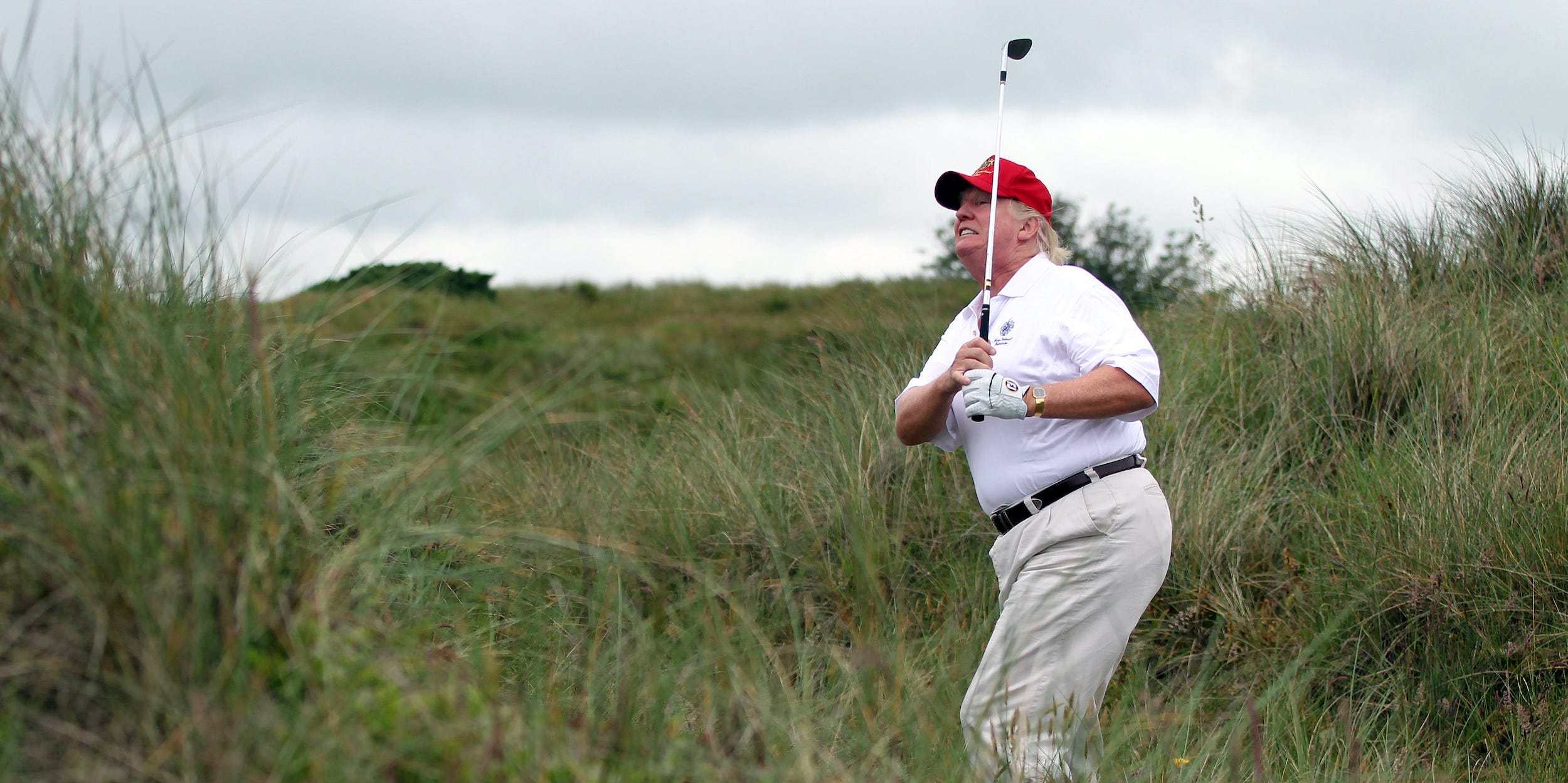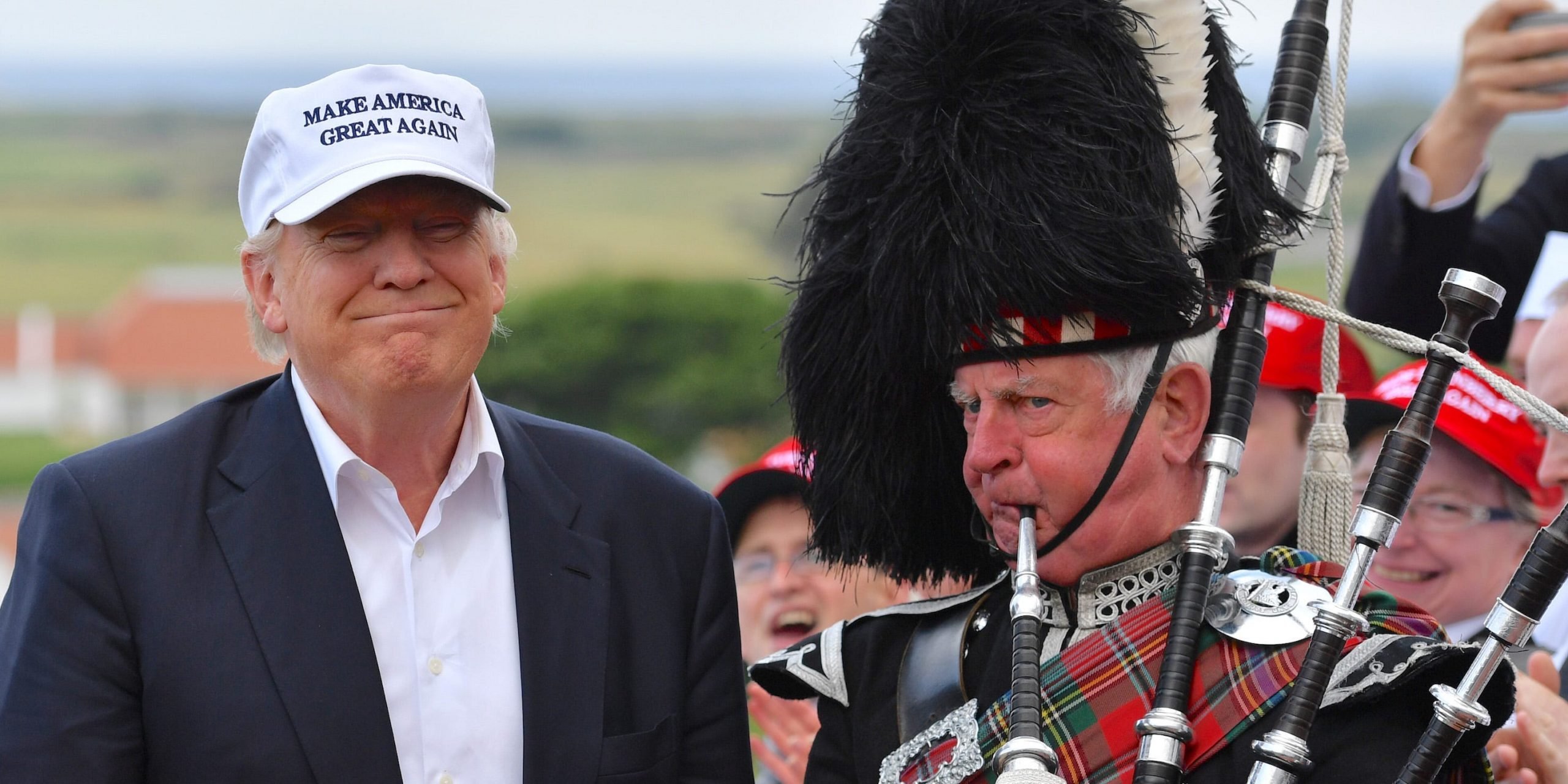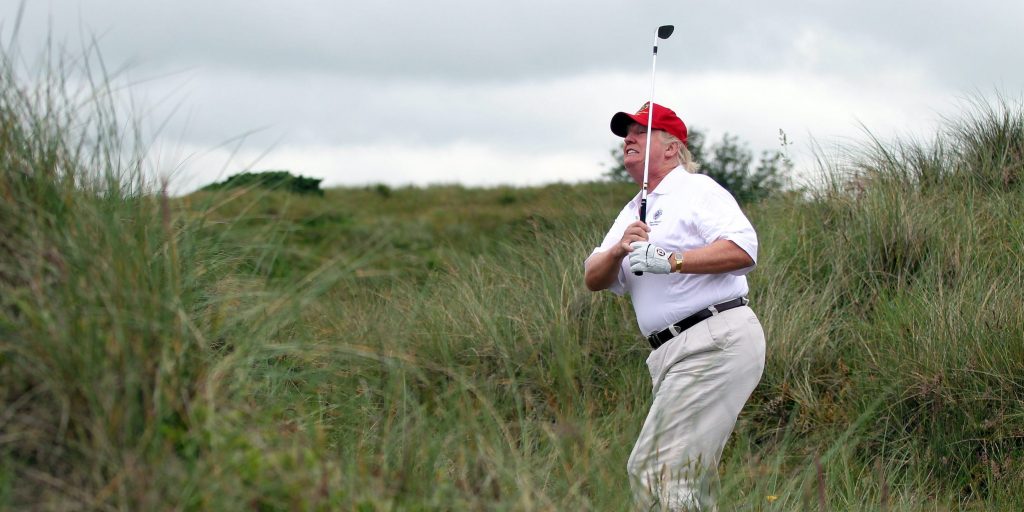
Getty
- Trump's failure to hedge loans to his Scottish golf courses cost him tens of millions of dollars, say experts.
- Accounts registered in the UK indicate that Trump issued loans from the US in British pounds.
- The British pound has declined significantly in value, adding tens of millions to his already huge losses.
- See more stories on Insider's business page.
Donald Trump's international courses have racked up huge losses and rely on loans from various Trump-owned vehicles in the United States just to stay afloat.
However, the scale of Trump's losses may be even greater than it first appears, with experts pointing out that Trump appears to have lost tens of millions of dollars more by failing to implement a very basic financial practice.
First, some context: Trump has two golf resorts in Scotland.
One is the iconic Turnberry near Glasgow, which he bought in 2014, and the other is Trump Golf Links International in Aberdeenshire.
These resorts lose millions of dollars every year, and neither has turned a profit since Trump purchased them.
Both resorts are also dependent on loans from Trump and US-owned entities to stay afloat.
Turnberry's parent company Golf Recreation Scotland owes Trump, through various US-registered entities, a total of £113,425,000 (around $160,000,000), according to UK Companies House accounts filed in December.
Trump International Golf Club Scotland Limited, which owns his Aberdeenshire course, owes Trump £44,400,049, also issued in the form of interest-free loans, according to Companies House accounts.
The problem is that Trump appears to have created those loans in British pound sterling - as evidenced by the fact they are all displayed as sterling loans on Companies House. The Trump Organisation would not confirm or deny this.
Unfortunately for Trump, the British pound has declined significantly in value against the dollar in the period since Trump started issuing loans to his golf courses.
That means that, when and if those loans are eventually repaid to Trump in his native dollar currency, they are going to be worth considerably less than when he issued them.
Trump has 'incurred a significant loss'

His Aberdeenshire course started racking up debts from the beginning of its operation in 2006, when £1 was worth nearly $2. Now, £1 is worth just $1.42 (as of June 9).
Turnberry's parent company has also been taking large loans from US-registered entities owned by Trump since he purchased the resort in 2014.
Stephen Clapham, an investment analyst and founder of financial website Behind the Balance Sheet, who has written previously about Trump's business practices in Scotland, estimated in October last year that the value of those losses may be more than $40 million.
The pound was worth $1.27 made those calculations, and it has since risen to $1.42 (as of June 9), meaning some of those losses will have been mitigated - but the current figure would still represent a loss amounting to tens of millions of dollars.
Those losses, said Clapham, appear to have been the result of Trump's failure to "hedge" the loans he created. In simple terms, hedging is a common business practice that offsets the risk of price movements like a drop in the value of a currency by fixing the repayment rate for a loan when it is created.
There is no evidence in Companies House accounts that Trump's loans were hedged, although it is possible that Trump hedged the loan privately in the United States. Insider asked the Trump Organisation to confirm whether the loans had been hedged but did not receive a response.
"Hedging is what every business does unless there's a specific reason you can't do it - for example, you're investing in [...] somewhere where the capital markets aren't developed enough to allow you to hedge the currency," Clapham told Insider.
The prospect of Trump having lost tens of millions of pounds by failing to implement a common business practice raises further questions about the soundness of his business judgment.
"The most likely explanation is that Trump has made this loan and incurred a significant loss. It's the simplest explanation and probably the most likely," said Clapham.
Dit artikel is oorspronkelijk verschenen op z24.nl
